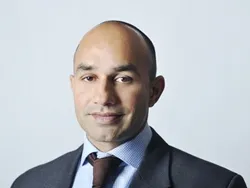Singapore
Are credit card rewards gambling too high?
Are credit card rewards gambling too high?
With credit card profitability under continued intense pressure, surely launching new rewards programmes is ground that only ‘fools would dare to tread’?
Tax avoidance: No laughing matter!
The recent controversy in the United Kingdom concerning the comedian Jimmy Carr’s offshore tax avoidance scheme has again raised the thorny issue of what is acceptable to HM Revenue & Customs (HMRC) where tax planning is concerned.
Banking employees seek financial stability
Cost-cutting at banking and financial institutions around the world is impacting confidence of employees in the industry locally, with employees ranking the financial health of a company as the most important factor when looking for a new workplace.
As budgets are squeezed, financial institutions look within for talent
Employees are seeking it and employers are supplying it: mobility. Moving people internally is an increasingly important way for firms to reduce recruitment costs, plug urgent skills gaps, boost retention rates, and take on low-risk talent with proven track records. And in the current stagnant external job market, it is providing staff with career progression opportunities they wouldn’t otherwise enjoy. This renewed emphasis on mobility was a critical topic for the 15 senior HR professionals from leading financial institutions who attended a recent roundtable discussion in Singapore organised by my company. A representative of a big four accounting firm, for example, said he has seen “huge demand” for in-house transfers in the last few months, especially from auditors wanting to work in another department and from employees outside of Asia looking for roles in the region. Mobility is a must Recent redundancies, cuts to hiring budgets and longer recruitment approval times have made many organisations revise the way they promote and run their mobility programmes this year. This is especially true for critical replacement roles. Managers would rather hire quickly from within their own ranks – even if the in-house candidate isn’t a perfect match for the job – rather than be slowed down by having to justify the high cost of going external. Mandatory two-week periods in which new vacancies are announced to the workforce before they are advertised externally are common place. Mobility, either internationally or to another department, is also an important retention tool. One roundtable attendee said this was especially true for back-office staff who tended to get “bored with their jobs” and wanted new challenges after about two years. “We are focussing on operations right now, then we will move into IT and other areas; it’s as step-by-step process.” Education and promotion The challenge for HR in instigating a company-wide mobility plan is educating managers that losing a good employee to another team or country office is in the best long-term interests of the business. Moreover, as a roundtable delegate remarked: “It’s critical to tell employees about what mobility really is. It’s not an easy option to escape your boss, or for a boss to shift a ‘problem’ person over to someone else.” To help ensure that only the best talent is eligible for transfers, one major international bank limits eligibility to the top 25 per cent of performers and insists on at least a year’s tenure. Encouraging internal mobility is more than just reactively marketing roles to staff as they arise. HR should have programmes in place to identify individuals who are willing to move. Two attendees mentioned that people at their banks were able to express an initial interest to HR without telling their line manager. One firm runs an online network in which staff can update their profiles, allowing in-house recruiters to search those who state they are mobile. Another incorporates a mobility discussion into annual development reviews. A representative from a European bank told the roundtable that his firm recently held an internal career fair, with booths promoting jobs in various departments. “It’s the first time we’ve been able to do this openly, this has helped changed people’s mindsets in favour of more open discussions about mobility.” Implemented with care and thought through in advance – with buy-in from HR, line managers and staff – internal mobility can offer timely solutions to some of the hiring needs faced by financial institutions in the current cost-conscious market. Moreover, with fewer external vacancies available than a year ago and a general candidate reluctance to change companies, many employees are willing to advance their careers via an in-house move. George McFerran, Managing Director, eFinancialCareers Asia-Pacific
Exploring hedge funds around the world
Hedge funds and their managers have in recent times vilified for their high-risk activities and relative lack of regulatory oversight. Recall that hedge funds were thought to be responsible for the Asian Banking and Financial Crisis of 1997. A recurrent concern shared by market participants and regulators around the world is that the increasing size of the hedge fund industry coupled with potential agency problems, activist investment practices and herding behavior may exacerbate financial instability. Having said that, although media reports frequently suggest that hedge funds are unregulated, hedge funds are in fact regulated at least to some degree in every country around the world. So before we start maligning hedge fund managers, it is worthwhile to consider such differences in legal and institutional settings across countries as they directly affect the structure, governance and performance of hedge funds. In our book Hedge Fund Structure, Regulation and Performance Around the World (Oxford University Press, 2013 with Douglas Cumming and Na Dai) we consider data from a multitude of countries to understand how and why hedge funds markets differ around the world. Idiosyncratic features of certain countries may distort our understanding of how hedge funds work in practice, therefore by considering international data including data from Asia and Europe, and not just US data, we are able to gain a significant amount of insight into how hedge funds operate on a global basis. While hedge funds are hardly regulated in the US, other jurisdictions implement different and sometimes more onerous sets of regulatory requirements. As explained in the book, international differences in hedge fund regulation include but are not limited to minimum capitalization requirements, restrictions on the location of key service providers and different permissible distribution channels via private placements, banks, other regulated or non-regulated financial intermediaries, wrappers, investment managers and fund distribution companies. This raises the question of whether hedge funds forum shop, that is move to jurisdictions that afford less strict forms of regulation. We find little support for the view that hedge fund managers pursuing riskier strategies systematically select jurisdictions with less stringent regulations. In fact, to the extent that there is evidence of forum shopping, it is for the most part suggestive that funds pursuing riskier strategies select jurisdictions with more stringent regulations. Hedge funds may select stricter jurisdictions mainly in order to facilitate capital raising, but nevertheless they are not seeking more amendable shores as initially though. So now we know. Not all hedge fund managers should be vilified, maybe just some. I say this because among other things, we also show evidence that international differences in hedge fund regulation are significantly associated with the propensity of fund managers to misreport monthly returns. For example, misreporting is less common among funds in jurisdictions with minimum capitalization requirements and restrictions on the location of key service providers. Finally, we also assess the determinants of hedge fund survival and examine arguments regarding the interplay between the hedge fund industry and the stability of financial systems and consider whether hedge funds affect macro-financial outcomes in a country, or the reverse causality regarding the affect of macro-financial conditions on the stability and survival of hedge funds. Essentially, hedge fund regulatory structures differ in many countries, so maybe we should not tar and feather all hedge funds with the same brush.
10 signs your investment management system is older than you
How often do you see someone tapping their feet to music from a walkman or speaking on a gigantic mobile phone that can no longer fit into a pocket? The answer is – hardly. Technology must evolve to meet the demands and needs to its users.
Singapore's central bank to establish rep office in Beijing
The Monetary Authority of Singapore has signed an agreement with the People's Bank of China to establish a representative office in Beijing.
Local currencies slowly becoming a substitute for G3 currencies?
Bankers believe local currencies are getting more important, but warns that their potential highly depends on the economic and trade positions it commands in the global arena.
Is Islamic finance moving towards Skype banking?
Branches can still remain the main delivery channel for Islamic banking, but CIMB warns that regulators must also know how to regulate things such as Skype and Facebook banking.
ING Direct: The vision, the strategy, the success
The Key to the Successful Launch of ING Direct
Does your bank deliver consistent customer experience?
Asian economies grow unabated and fresh ones like Myanmar, who are shooting up and attracting global attention. Few months back the very savvy Malaysian business tycoon, the owner of Air Asia and the EPL team Queens Park Ranger, Tony Fernandes took a plane load of friends and other top businessmen, for a reconnaissance mission to erstwhile Burma.
Migrating to chip-based ATM cards
The unauthorized ATM withdrawals that occurred in Singapore over the past year have highlighted the issue of payment fraud.
Competition for deposits heats up in Asia
Find out how banks wage war for deposits in Singapore, South Korea, Hong Kong, and Indonesia.
What keeps Singapore banks the world’s strongest?
Reports say that OCBC, UOB, and DBS lead Bloomberg’s ranking of the world’s strongest banks - what could be the key to their success?
“There will not be any uniformity of application of Shariah”: CIMB
But the former CEO of Kuwait International Bank argues that standardization of global Islamic banking suite of products and services will lead to more uniform Shariah compliance over time.
Islamic banks urged to diversify to overcome scale disadvantage
They will have to venture in asset management and wealth management to sustain the growth of Islamic finance.
Bye-bye bankruptcy: How to effectively manage cash flow
Whether you’re a local plumber or multi-national conglomerate, cash flow is the heart of any businesss. Managed poorly, it will stymie business growth, and in the most extreme case lead to bankruptcy.

















 Advertise
Advertise








